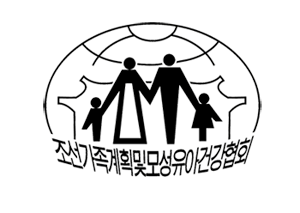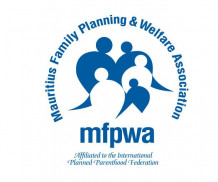

| 31 March 2016
Korean Family Planning & Maternal Child Health Association of DPRK
The Democratic People’s Republic of Korea (DPRK): Family Health Association of Korea (FHAK) formerly Korean Family Planning & Maternal and Child Health Association (KFP&MCHA) was established in 1990. Family Health Association of Korea is actively supported by the government to diversify family planning services and to improve their quality. One of the major challenges is geographic inequality. 80% of the country’s land mass is mountainous, with mining constituting a major industry. Large numbers of people live in this area, working in coal and mineral mines and forest stations. Fertility rates are much higher than in large urban areas, the contraceptive prevalence rate is much lower, and the number of trained family planning advisers is limited. FHAK has targeted these people with reproductive healthcare and information, education and communication (IEC) programmes. Contraceptive prevalence has increased, and the method mix has shifted significantly from IUD to pills, condoms and sterilization. In 2010, FHAKdelivered 538,000 condoms and 138,000 sexual and reproductive health services through 17 service points, including 9 permanent clinics and 8 mobile facilities. The Democratic People’s Republic of Korea (DPRK): Family Health Association of Korea (FHAK) is actively supported by the government to diversify family planning services and to improve their quality. One of the major challenges is geographic inequality. 80% of the country’s land mass is mountainous, with mining constituting a major industry. Large numbers of people live in this area, working in coal and mineral mines and forest stations. Fertility rates are much higher than in large urban areas, the contraceptive prevalence rate is much lower, and the number of trained family planning advisers is limited. FHAK has targeted these people with reproductive healthcare and information, education and communication (IEC) programmes. Contraceptive prevalence has increased, and the method mix has shifted significantly from IUD to pills, condoms and sterilization. In 2010, FHAK delivered 538,000 condoms and 138,000 sexual and reproductive health services through 17 service points, including 9 permanent clinics and 8 mobile facilities.

| 31 March 2016
Mauritius Family Planning & Welfare Association
Set up in 1957, the Mauritius Family Planning & Welfare Association (MFPWA) was one of the earliest organizations in Africa focusing on family planning issues. As the nation struggled to find a way to address pressing population issues, a group of advocates formed MFPWA and started to provide services directly to women. Today, the organization caters to the sexual and reproductive health (SRH) needs of the whole community. It also has particular strands of activity relating to specific groups including sexually abused children, elderly people and marginalized populations on Rodrigues Island. Through 2 permanent facilities, and a private sector-supported daycare centre, MFPWA’s 15 staff and 550 volunteers deliver services including family planning, the prevention and management of HIV and AIDS through voluntary counselling and testing (VCT), support for people living with HIV/AIDS, infertility management, antenatal and post-natal care, post-abortion care, the diagnosis and treatment of sexually transmitted infections (STIs) and screening for cancers of the reproductive systems. The Member Association also operates peer-educator-led outreach programmes targeting hotels, export processing zones and popular tourist hot spots. MFPWA has played a critical role in promoting the integration of family life education into the national school curriculum and its powerful, informed advocacy has been influential in shaping government legislation on SRH, particularly in relation to HIV and AIDS. MFPWA partners with and advises government departments which address health, quality of life, women’s rights, child development, family welfare, social security and youth and sports. MFPWA works with a large number of non-governmental organizations (NGOs) including the Mauritius Council of Social Service, the Mauritius Alliance of Women, PILS (People living with AIDS), SOS Pauvrete, the National Women’s Council, the Senior Citizen Council and Link. Donors include the Indian Ocean Commission and UNFPA. Website: http://mauritiusfamilyplanning.com







